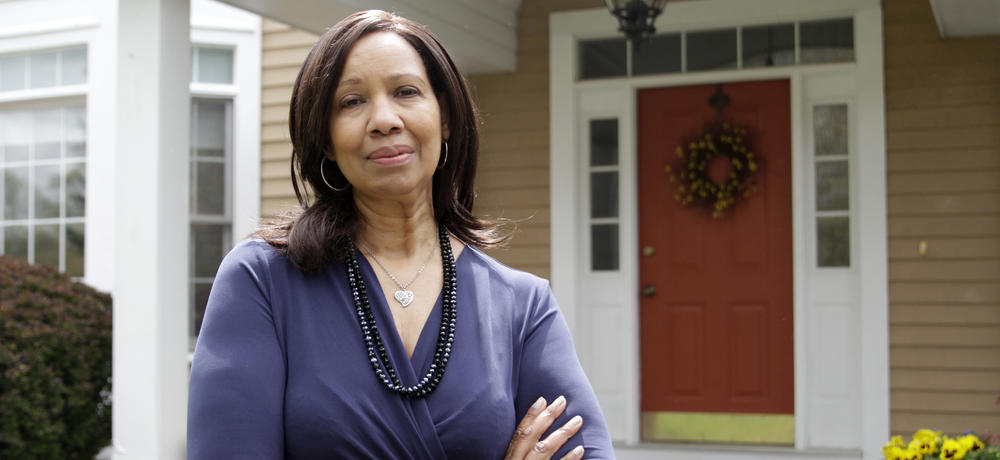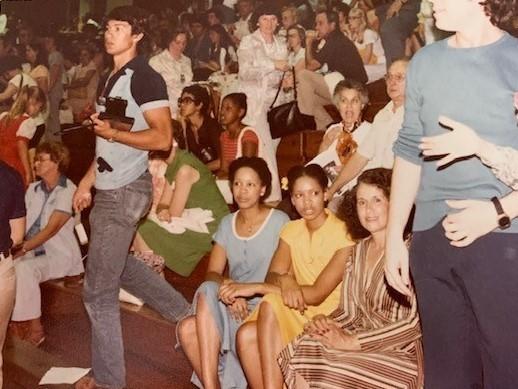Section Branding
Header Content
An Immigrant Family Navigates Generational Trauma
Primary Content
Colette Baptiste-Mombo, a television engineer and community organizer, was born in 1958, at the height of the civil rights movement.
Baptiste-Mombo's parents came from different immigrant backgrounds — while her mother was from northern England and immigrated to the U.S. from Wales, her father was born in the Bronx. His family was from Jamaica.
While Baptiste-Mombo was growing up in New York City, African Americans across the country were fighting to end racial discrimination.
"We read stories about Jim Crow and segregation and lynching. But we don't read stories about what happens in between that, while civil rights was being played out," she says.
When Baptiste-Mombo was seven years old, she and her family moved from Queens, NY, to the suburbs of Jackson Township, NJ.
"We left what now I see was our comfort zone — moving from an all-Black neighborhood into an all-white neighborhood," she says. "And we later came to find out that it was not going to be an easy road for our family."
Soon after moving in, the entire family was the subject of constant racist verbal attacks. These experiences culminated in a violent altercation that left Baptiste-Mombo injured. It was a defining time for her and her family — of what it means to be Black in America.
Today, Baptiste-Mombo is a community organizer in Connecticut for the social justice initiative Justice Southbury.
In conversation with Dr. Shavonne Moore-Lobban, a licensed psychologist and training director at the Chicago School of Professional Psychology, Baptiste-Mombo explores the legacy of generational trauma that stems from racism, and in turn, how it can manifest into generational resilience.
"The impact of trauma gets passed down through generations, but so does the desire to survive it," says Moore-Lobban.
This story is part of the Where We Come From series, featuring stories from immigrant communities of color across generations, in honor of Immigrant Heritage Month. Find more stories here.
Video reporting, production, and editing by Michael Zamora. Anjuli Sastry created and produced 'Where We Come From' with additional editing and production by Julia Furlan and Diba Mohtasham. Additional video editing by Ben de la Cruz and Nicole Werbeck. Our director of programming is Yolanda Sangweni.
Copyright 2021 NPR. To see more, visit https://www.npr.org.


